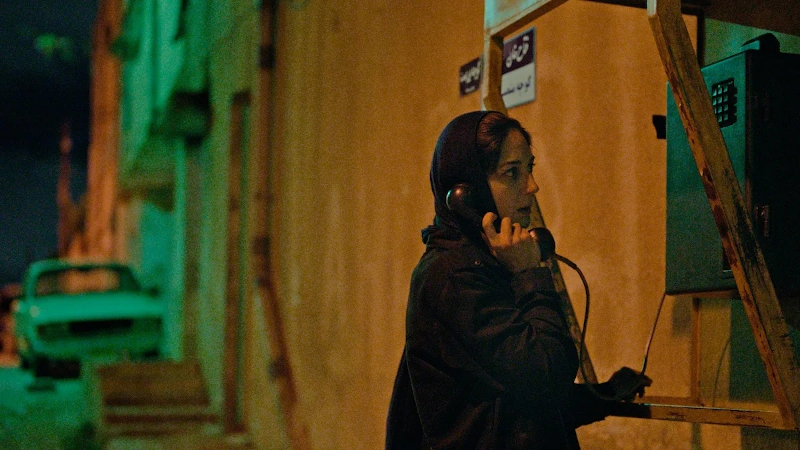Director – Ali Abassi – 2022 – Denmark, Norway, Sweden, France, Germany – Cert. 18 – 116m
*****
An Iranian lady crime journalist poses as a prostitute in an attempt to uncover the identity of a serial killer justifying his killing spree in the name of Islam – out in UK cinemas on Friday, January 20th and on MUBI from Friday, March 10th
2000. The Holy City of Mashhad, Iran. Leaving her small daughter at home, a woman goes out into the night. She changes into high heels in a lavatory then goes onto the streets to ply her trade as a prostitute. She tells a streetcrawler to “fuck off”. In any encounter with male sexuality, violence is never far away; in a frenzied coupling in an apartment littered with the awards of a successful entrepreneur, a client tells her, “I’m going to tear your pussy apart.”
Another man refuses to pay more than half for a blow job when police are seen near the car in which she’s performing the service, preventing him from climaxing. A further man asks her onto his bike, but later in the stairwell to his apartment she thinks she may have made a mistake and tries to excuse herself. He won’t let her go. There’s a struggle. He bundles up her lifeless body in a carpet.
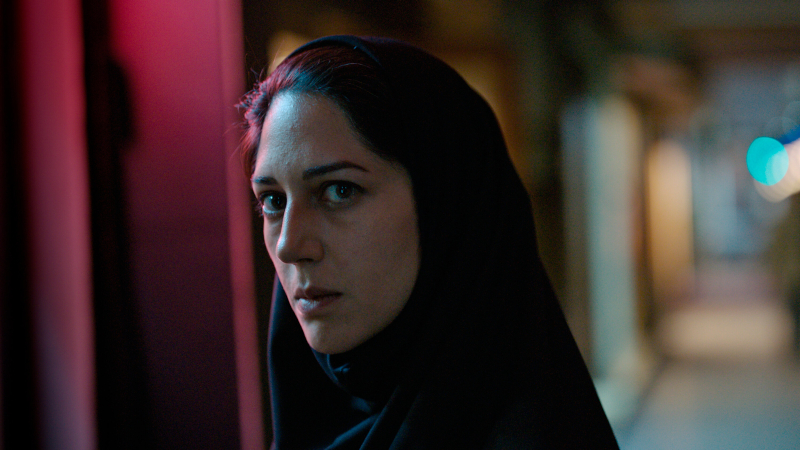
Elsewhere in the same city, Rahimi (Zar Amir-Ebrahimi) encounters difficulties in person at the hotel where she has booked a room because she is not accompanied by a man. That is, until she shows her journalist’s ID, at which point the man at the front desk miraculously finds her a free room which had been full only seconds earlier. The male crime desk editor Sharifi (Arash Ashtiani) for whom she’s writing the story about the killings of a string of prostitutes tells her there’s been no clue as to the killer’s identity in six months.
The killer makes regular phone calls to the reporter, telling him he’s waging a jihad against vice; the authorities, meanwhile, have warned the reporter to keep away from the religious stuff. When she tries to dig for information with the police officer in charge of the case, sexual harassment rears its ugly head.
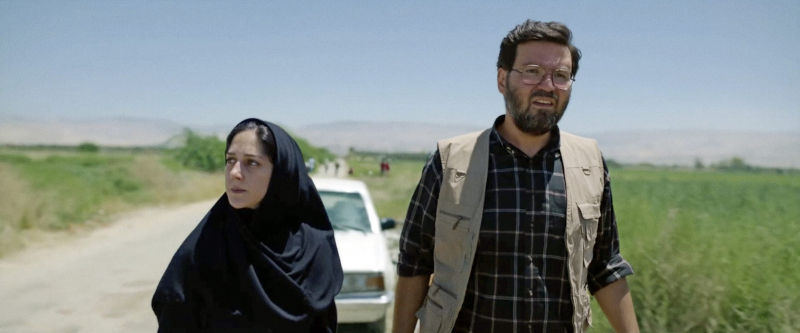
As more women are killed, she decides that the only way to get her story is to act as bait for the killer and expose him. A risky and potentially deadly approach.
Intermittently, while all this is going on, we see the killer Saeed (Mehdi Bajestani) both as he commits his atrocities and in his life outside of that, and know him to be a family man with a devoted wife completely unaware that he’s the perpetrator. They appear to have a healthy sex life, which stands as a terrifying contrast to his interactions with the women he lures to their deaths off the street under the pretext of cleaning the city up on behalf of God. So there’s no mystery to the audience as to his identity: the tension arrives from whether he will kill again, and whether the lady journalist will be able to find and expose him without getting herself killed.
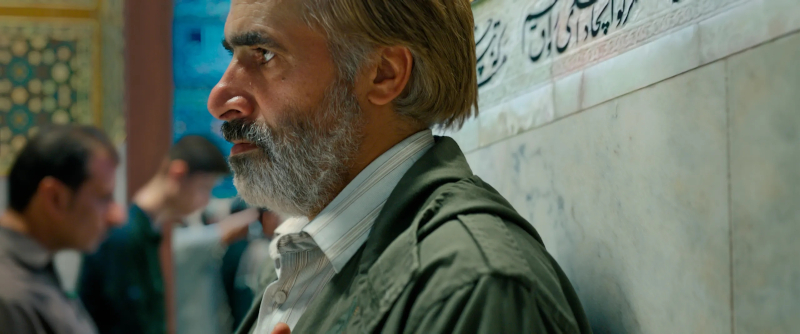
And although there are men around Masshad who treat women decently, such as the editor with whom she’s currently working, the vast majority of men there appear deeply sexist, a stance bolstered by the heavily male interpretation of Islam that in an extreme case drives one man to murder female prostitutes. If it hadn’t already been taken (as the original language title of the book The Girl With The Dragon Tattoo), the title The Men Who Hate Women would have fitted this film perfectly.
Perhaps more disturbing still is Saeed’s attitude to his son. It’s as if he’s coaching him to carry on his “work” killing women should anything happen to him.
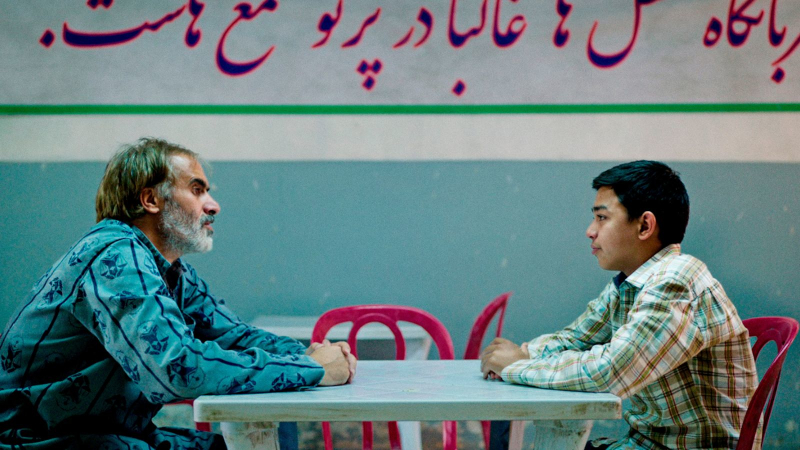
The extraordinary final reel – difficult to write about without giving spoilers away, except that its deftly juggled mix of crime, punishment, corruption and deception will keep you guessing throughout as to what’s going to happen – packs a hell of a punch and will stay with you long after the film has finished. It doesn’t defy genre conventions in quite the same way as Abassi’s earlier, equally unpredictable Border (2018) – this is very definitely a crime movie, albeit one that explores aspects of religion (specifically Islam as interpreted by Iran) as they pertain to the crime and the way a society deals with it.
The killings themselves make for harrowing viewing, giving real dignity to the killer’s victims without shying away from showing the killings in all their unpleasantness. The everyday sexism shown outside of these scenes is clearly not in the same league, however, it’s impossible not to read both killings and sexism as symptoms of a larger problem. It’s hard to imagine a film like this being made within Iran itself, with its regime’s repressive attitude towards filmmakers.
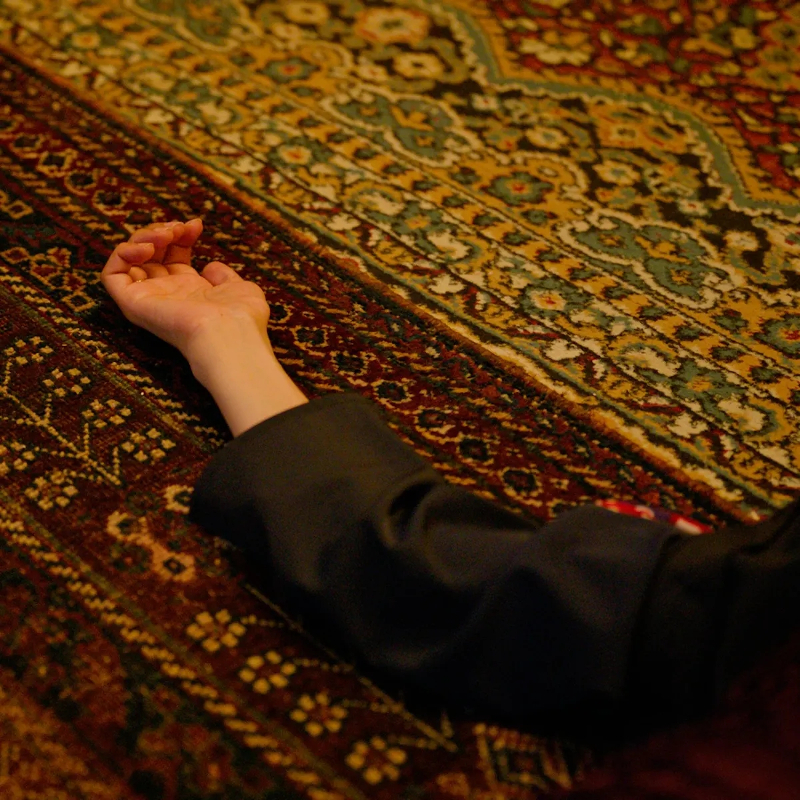
Indeed, Tehran-born Abassi is currently resident in Denmark, but hadn’t yet emigrated there from Iran in the years 2000-2001 when the real life events on which this film is based took place. The killer is a real life historical character, while the journalist is a fictional invention. The writer-director’s background of growing up in that country means that, to all intents and purposes, this is an Iranian movie even though it was made in the more liberal West. It plays out as at once a terrific, edge-of-the-seat thriller and, in passing, a challenge to sexist social norms. See it.
Holy Spider is out in cinemas in the UK on Friday, January 20th and on MUBI from Friday, March 10th.
[Read my alternative review for Reform magazine…]
Trailer:
